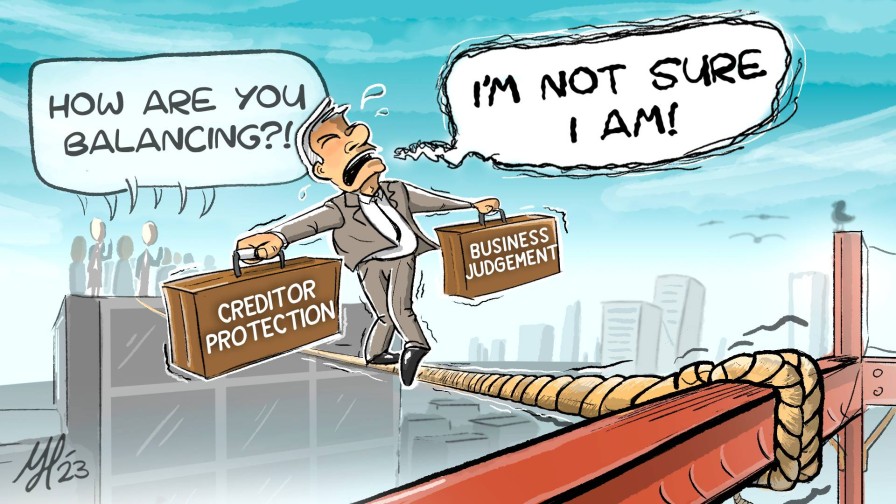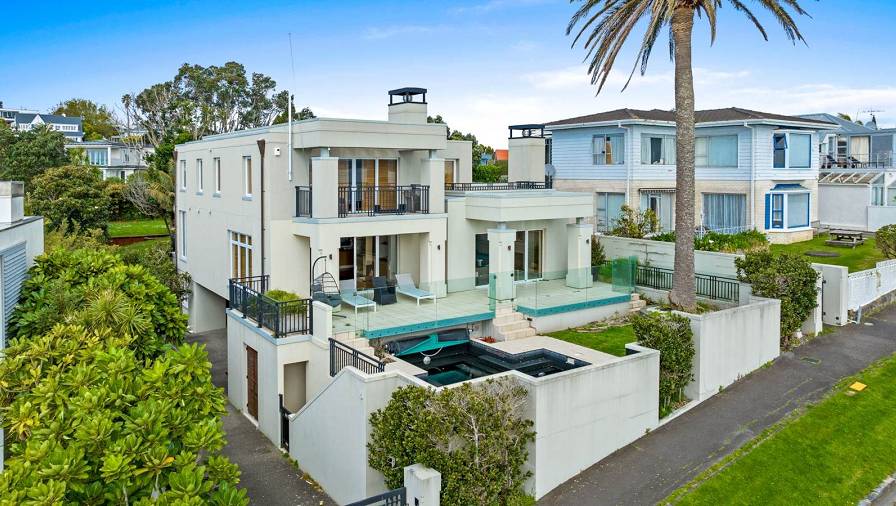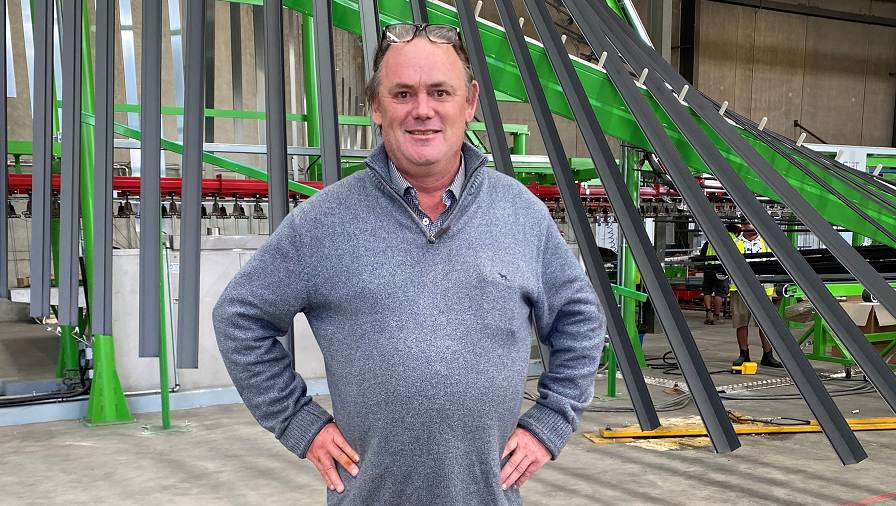

Your most popular NBR stories of 2023
Property, supermarket confusion, fishy smells, Mainzeal, and Winston: NBR’s 10 most-read stories this year.
WATCH: NBR co-editors Hamish McNicol and Calida Stuart-Menteath discuss the top stories of the year.


Property, supermarket confusion, fishy smells, Mainzeal, and Winston: NBR’s 10 most-read stories this year.
WATCH: NBR co-editors Hamish McNicol and Calida Stuart-Menteath discuss the top stories of the year.
Ready for a holiday? Same.
Last year – similarly citing end-of-year exhaustion – your co-editors dedicated the last Last Word of 2022 to a wee countdown of NBR’s most popular stories during the year.
These are the stories that were the most-read by you, our member subscribers. We’re proudly 100% subscriber funded, with no advertising or government funding, and so a massive thank you once again for all your support throughout the year.
We’re proud to have once again delivered award-winning journalism, our marquee NBR List, as well as a bunch of scoops, investigations, and projects ranging from Bookkeepers to Dealmakers. Oh, and just this week, we published a special investigation looking into supermarket pricing tactics using never-before-seen data from every single supermarket in the country (more on all this, soon).
We’ll mostly all be knocking off for a break from next Friday and hope you all enjoy a restful summer break. Or, at the very least, an actual summer this year.
On Monday, we’ll also publish our annual Shoeshine Awards, where we’ll poke a bit more fun at some of the year’s biggest stories. In the meantime, here are this year’s most popular NBR stories (in reverse order).
This story unexpectedly went on to produce a sensational follow-up from the New Zealand Shareholders’ Association business journalist of the year, Nicholas Pointon, but had its beginnings in a story that’s become all too familiar this year: construction failures. Of course, brandishing the Stonewood Homes name had some pulling power, but this story also perfectly captured the sense of doom and gloom in the housing sector this year in the face of labour and material shortages, falling house prices, and rocketing interest rates.
This special investigation was only launched this week but it quickly found itself in our most popular stories of the year, with readership still steadily climbing. We obtained never-before-seen supermarket pricing data, which showed the price of core products varying by as much as 91% over a six-week period. The data was provided to us by a company called Ordian, which plans to launch a consumer-facing version of its PricePulse treasure trove soon (stay tuned for the impact that could have on grocery shopping). All of this, of course, comes following another massive year for the $25 billion supermarket sector, which saw the demise of would-be challenger Supie, a stoush between The Warehouse and Sanitarium, and a Commerce Commission starting to maybe, just maybe, flex some muscle.
There’s a decent argument to be made that this was Tim Hunter’s best column of the year – although last week’s Hunter’s Corner goes close – and readers responded accordingly. It’s worth your time reading if you missed this one, but basically, it goes to a brief but extraordinary exit statement from former independent director Abby Foote, which shows something was seriously off at the country’s second-largest fishing company. The NZSA is suitably sniffing around this one too, and there’s no sign things are about to improve any time soon. A company to watch in 2024.

Illustration: Michael Hickmott.
Dubbed the directors’ duties case of a generation, in August this year, we finally got a long-awaited Supreme Court decision on Mainzeal. That decision dismissed appeals from the four directors of the failed construction company, including ex-prime minister Dame Jenny Shipley, and ordered they were liable for more than $40 million. The judgment has led to renewed calls for a re-write of directors’ duties laws and the Companies Act in New Zealand, and is essential reading for the hundreds of thousands of company directors in the country. The next step may well prove bankruptcy for Shipley, Richard Yan, Peter Gomm, and Clive Tilby, with their total liability including interest at more than $50m. Woof.

We all know how this ended (at least for now) but, before the coalition Government was formed in early November, once-again-kingmaker Winston Peters gave NBR political editor Brent Edwards an exclusive interview on where negotiations were at, as well as his belief more progress could have been made sooner had the National Party and Act not been fixated on doing a deal together without New Zealand First. Essential Winston.

John Penno.
One of those stories that gets more explosive the more that comes out ... NBR in July broke news of the existence of a dispute involving NZX-listed milk processor Synlait and a company associated with its founder John Penno, arising from a software business sold in March to Nasdaq-listed VerifyMe. But our fifth most popular story revealed the A2 Milk link, before Hunter went on to write even better stories, including correspondence between A2 Milk chief executive David Bortolussi and Penno revealing serious tension between them over Penno’s interest in a third-party supplier of product tracing technology. Given everything else that’s going on between these two, it’s unsurprising to see the interest.

Property and failure always attracts an audience, as we saw with the Stonewood Homes story earlier. This one, from Maria Slade, saw financier Vincent Capital call in its lending to the Treasure Plus group, which left multiple properties at various stages of development. We’ve since learned the property developer owes a whopping $54m, with the developer’s largest project at Dawn Park left as a partially completed development of 82 units in Te Atatū South, of which 38 had been pre-sold.

Warren Lewis.
Few had heard of FMI Building Innovations owner Warren Lewis before he hit the headlines this year following a $500,000 donation to the National Party, the largest political donation in the country’s history. Slade scored an exclusive interview with the “unassuming bloke”, who told us why he’d made his first-ever political donation. “We have so many issues that need to be dealt with, from childcare to child poverty, education, health, police, then all the way up to climate change, and simply I believe that, with separatism, achieving those things is going to take three times as long and cost three times as much money,” he says. “I believe what’s best for all New Zealanders is for our political leaders to reunite New Zealand, to allow us to more economically and more quickly deal with the issues that everybody’s promising to deal with. And, at this year's election, I believe National, and particularly Mr Luxon, are best placed to achieve that.” We shall see.
A perennial favourite among our subscribers, once again NBR’s long-standing and marquee annual project, The NBR List, proved hugely popular. Each year, we celebrate and document New Zealand’s wealth creators, people who build the country’s economic fortunes, and use their position to give back. Work is already under way on the 2024 edition, with a few changes in store…
Another example of a story that starts with something and only gets bigger. This – from our first-ever Australian correspondent Lachlan Colquhoun (hired this year) – picked up a bizarre High Court judgment, which revealed two companies on either side of the Tasman were facing liquidation and administrators were chasing up to US$100m in missing funds, some of which seemed to have disappeared into another failed company in the Malaysian tax haven of Labuan. We have continued to cover the fallout of this one, and it’s only gotten weirder (and potentially more embarrassing for the local legal profession and authorities). Definitely one to watch in 2024.
Hamish McNicol and Calida Stuart-Menteath are NBR’s co-editors.